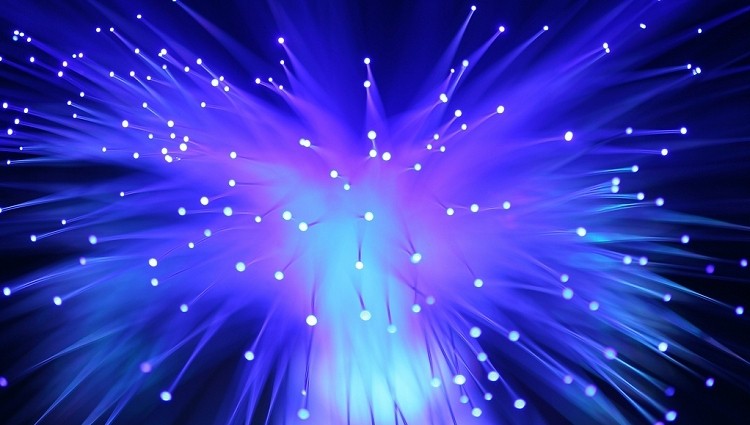
A joint research team from French telecoms Alcatel-Lucent and BT have come up with a 1.4 terabit connection that would put Google Fiber and all other competitors to shame. The technology is said to use commercial-grade hardware with a new protocol that allows for much faster data transfers.
The protocol is called Flexigrid and it allows multiple signals to be laid over top of each other within a single cable. In testing, researchers were able to layer seven 200 Gbps channels to create an “Alien Super Channel” with 1.4 Tbps speeds across some 255 miles of fiber that stretch from a BT research facility in Suffolk to a BT Tower in London.
Just how fast is 1.4 Tbps, you ask? Well, in terms of streaming, one could stream 64 hours of HD Netflix, 38 hours of Netflix in 3D or 4K or 36,409 songs – all within one second. Yeah, that is pretty darn quick.
The real benefit here is the fact that no new hardware is necessary – it’s all being done with a new protocol. In theory, it could be implemented on existing fiber that is already in the ground and give Internet providers a serious incentive to continue building fiber networks. Aside from Google, there really aren’t many companies laying fiber in the US as of writing.
Of course, with a connection speed that fast, you’d almost always be the bottleneck but hey, that’s a problem that I think most of us would be just fine with.